Sepia Saturday provides bloggers with an opportunity to share their history through the medium of photographs. Historical photographs of any age or kind become the launchpad for explorations of family history, local history and social history in fact or fiction, poetry or prose, words or further images. If you want to play along, sign up to the link, try to visit as many of the other participants as possible, and have fun.
This week’s prompt photo prompted me to return to my great uncle Fred M. Webber. He has his own landing page here because I keep adding to his story. As I have researched Uncle Fred, I have found a few surprises along the way. Today, though, a look back at his high school days. I’m guessing that the photo I chose in response to the prompt image may have been from his college days based on his cool demeanor and nice hat.

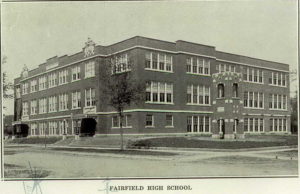 Fred M. Webber attended Fairfield High School in Fairfield, IA, where he was a member of the debate team.
Fred M. Webber attended Fairfield High School in Fairfield, IA, where he was a member of the debate team.
As the fifth of nine children in the family, I wonder if Fred’s debating skills developed at an early age and how those debating skills worked out at home once he really mastered debate in high school.
The first documentation I located of Fred’s participation on the debate team was during his Junior year of high school. The article notes that Fred was chosen for the Big Nine League team from Fairfield High, arguing the negative on the question: “Resolved, that the United States should join the other nations in a world court.”
In March, the team met their rival team from Davenport, with the Fairfield team of three arguing the affirmative on the same question. A newspaper clipping announcing the upcoming debate noted that Fairfield had won 14 of 15 debates during the previous two years. Unfortunately, Fairfield lost this one, bringing their score to 14 of 16. Newspapers and available yearbooks on ancestry.com let me down and I don’t know how the year ended for the debate team, but Fred M. Webber came in second place in the Big Nine League state extemporaneous speaking contest that year.
Fred’s Senior year of high school was a big one for the debate team. March 3rd found the Fairfield team winning a debate against the Montezuma team on the topic of government vs. local control of mines. They now had eight victories under their belts, having argued both sides of that question. On March 23rd, the Fairfield team beat the Davenport team in what the Davenport newspaper deemed a repeat “victory of decade,” this time arguing the affirmative side of the question: “Resolved, that the Japanese Exclusion Act should be repealed in favor of a gentleman’s agreement.”
An article from March 26th is amusingly descriptive of the anticipated debate against Iowa City.
This looks like a photo related to the match with the Iowa City team.
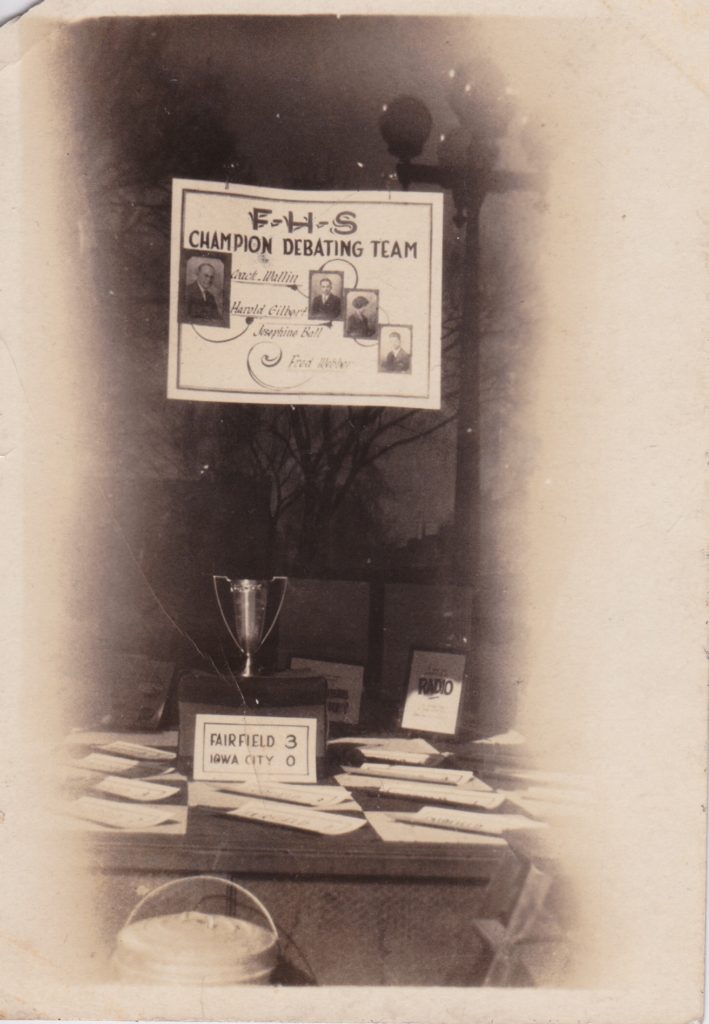
And since these undated photos were in my grandmother’s scrapbook on the same page as the photo above, I’ll assume this is the team with the trophy they won that day. Everyone got the chance for a photo holding the trophy on the steps of Fairfield High School.
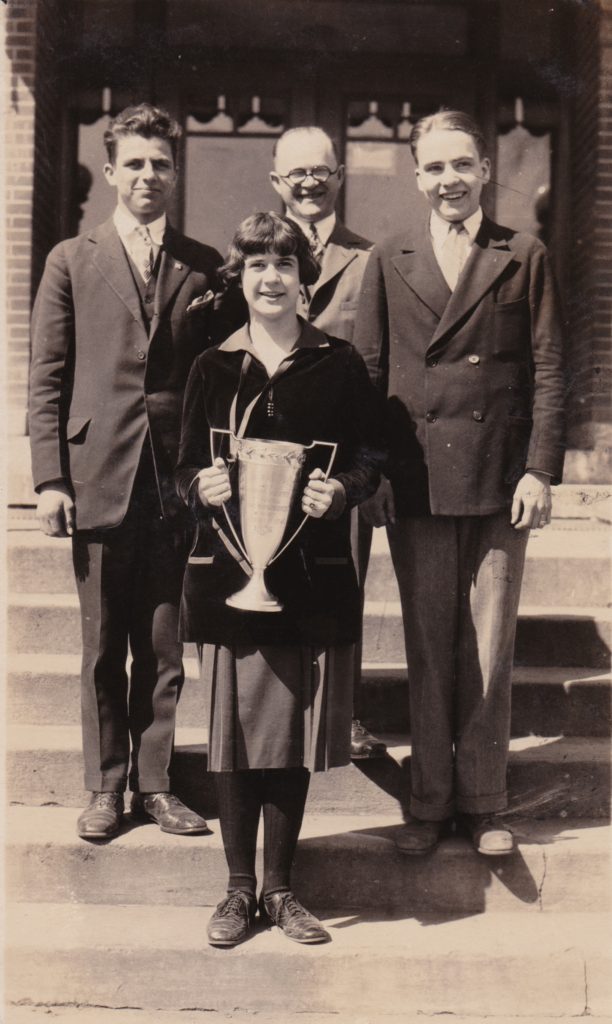
The 1926 edition of The Quill, Fairfield High School’s yearbook, offered this take on the debate team in the Broughgam mentioned in the article above about their win over Des Moines. The team of boys and girls pulling the carriage replaced by mules in the collage. The photo collage is printed sideways, but I’ll rotate it so you don’t have to rotate your head. Fred’s head is in the back seat with their coach. (Click to enlarge.)
On March 30, the Fairfield team won the Iowa Eastern Title, again on the topic of mines. On Friday, April 30th, the Fairfield debate team met the Rock Valley team in Iowa City for the state championship. A radio was set up in the Fairfield High School auditorium so that everyone could hear the live broadcast of the debate. They were not disappointed.
Monday found the championship debate team – Fred Webber, Josephine Ball, and Harold Gilbert, celebrated by the residents of Fairfield. The band led the student body and faculty in a march from the school to Central Park.
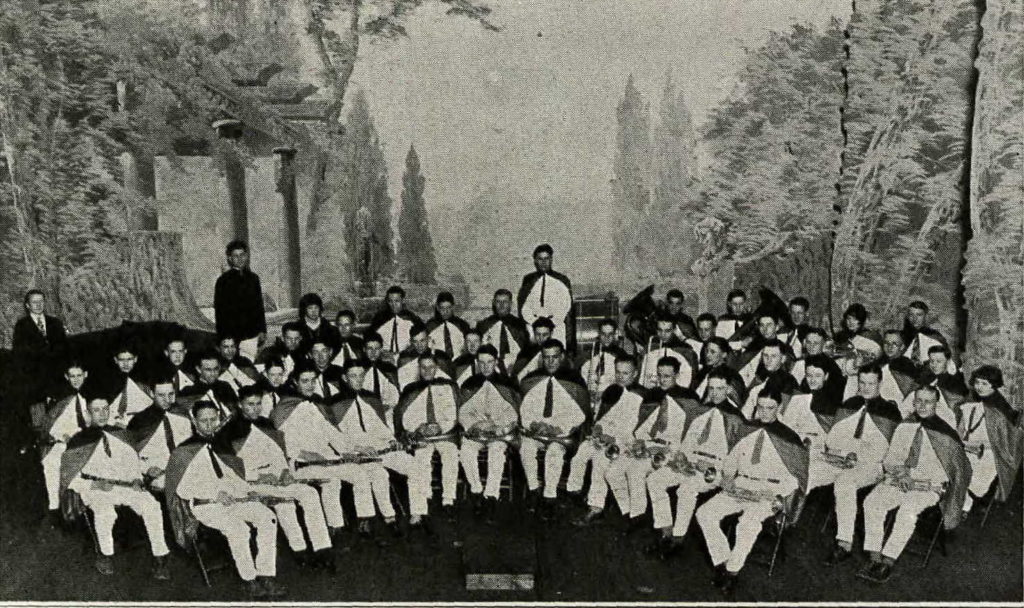
There, the band escorted the debate team up to the bandstand where they were met by a committee of citizens representing the school board, city government, merchants and ministers.
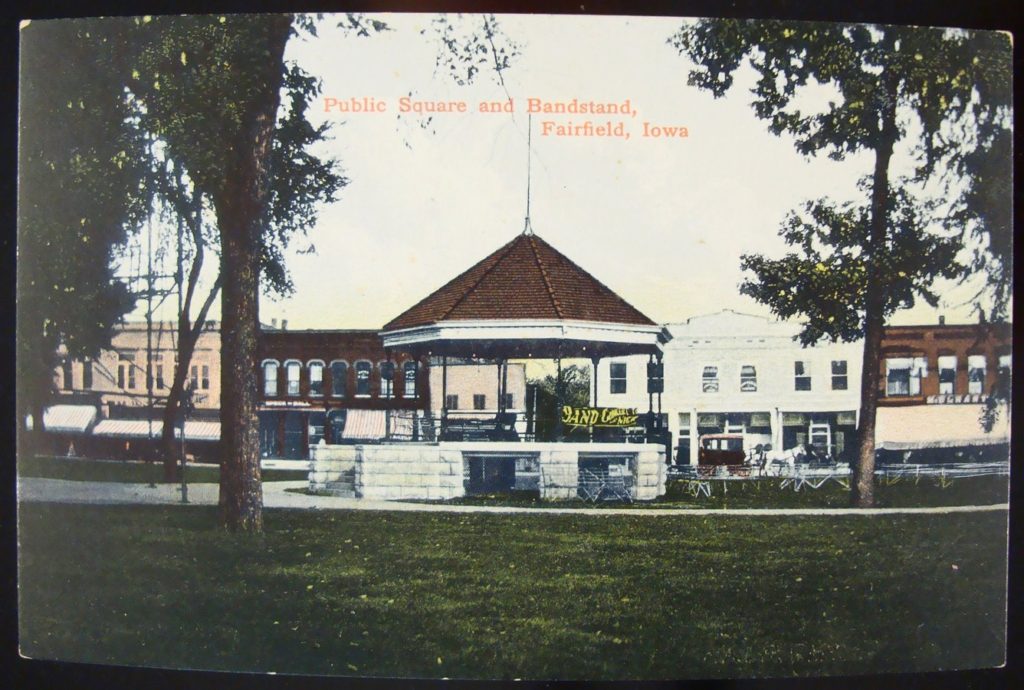
One of Fred’s grandchildren is in possession of a trophy presented by the debate coach to Fred.
PRESENTED
BY
S. E. Wallin
COACH
FOR
BEST DEBATER
1926
WON
BY
Fred Webber
The yearbook offered this tribute to their state champion debate team. Fred and his teammates were offered scholarships to the University of Iowa.
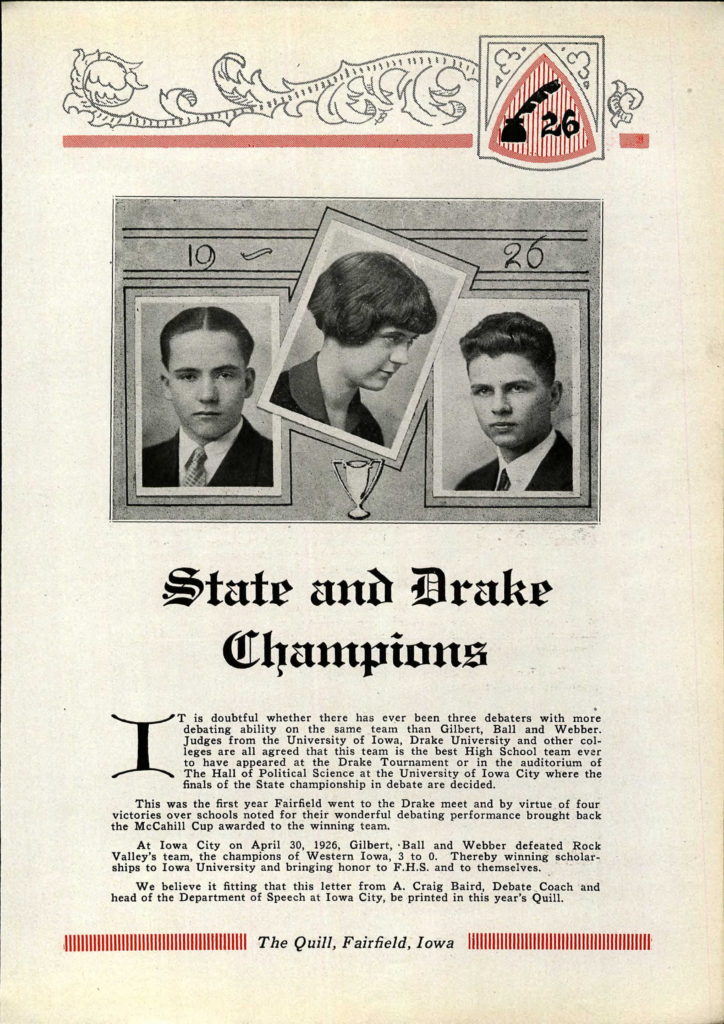
And the following page includes a letter from from the Debate Coach at the University of Iowa.
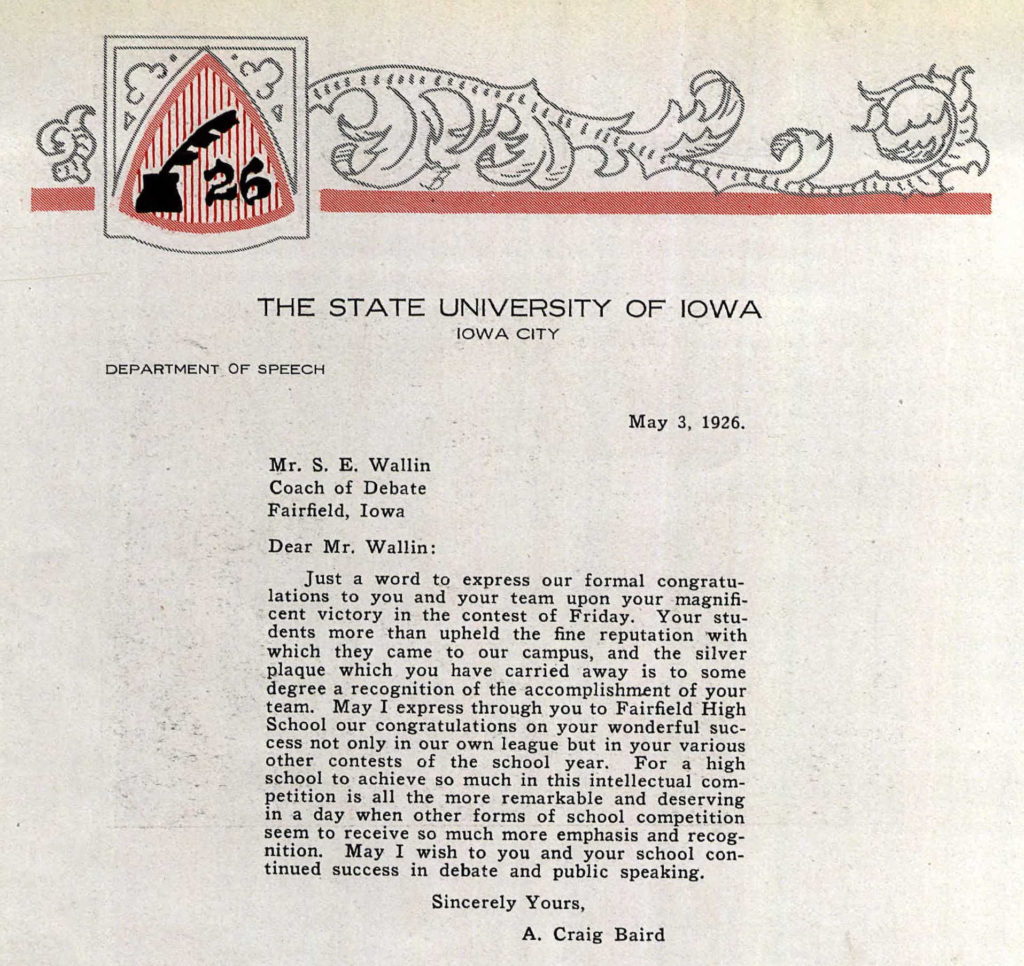
Fred accepted that scholarship. It was his ticket to the University, something neither he nor his family could have afforded. Fred, his parents, and siblings who were still in the home moved to Iowa City so that Fred could attend the University. The scholarship must not have included room and board. I wonder what kind of debate went on within the family about moving?
I think it is safe to say that Fred’s participation in high school debate played a significant role in the trajectory of his life.
When I started this post, I thought I’d get to include more of the fun things I found in his high school yearbook and his college days, but those will have to wait for another day.
Take the stairs, if you are able, and visit the other participants in Sepia Saturday.

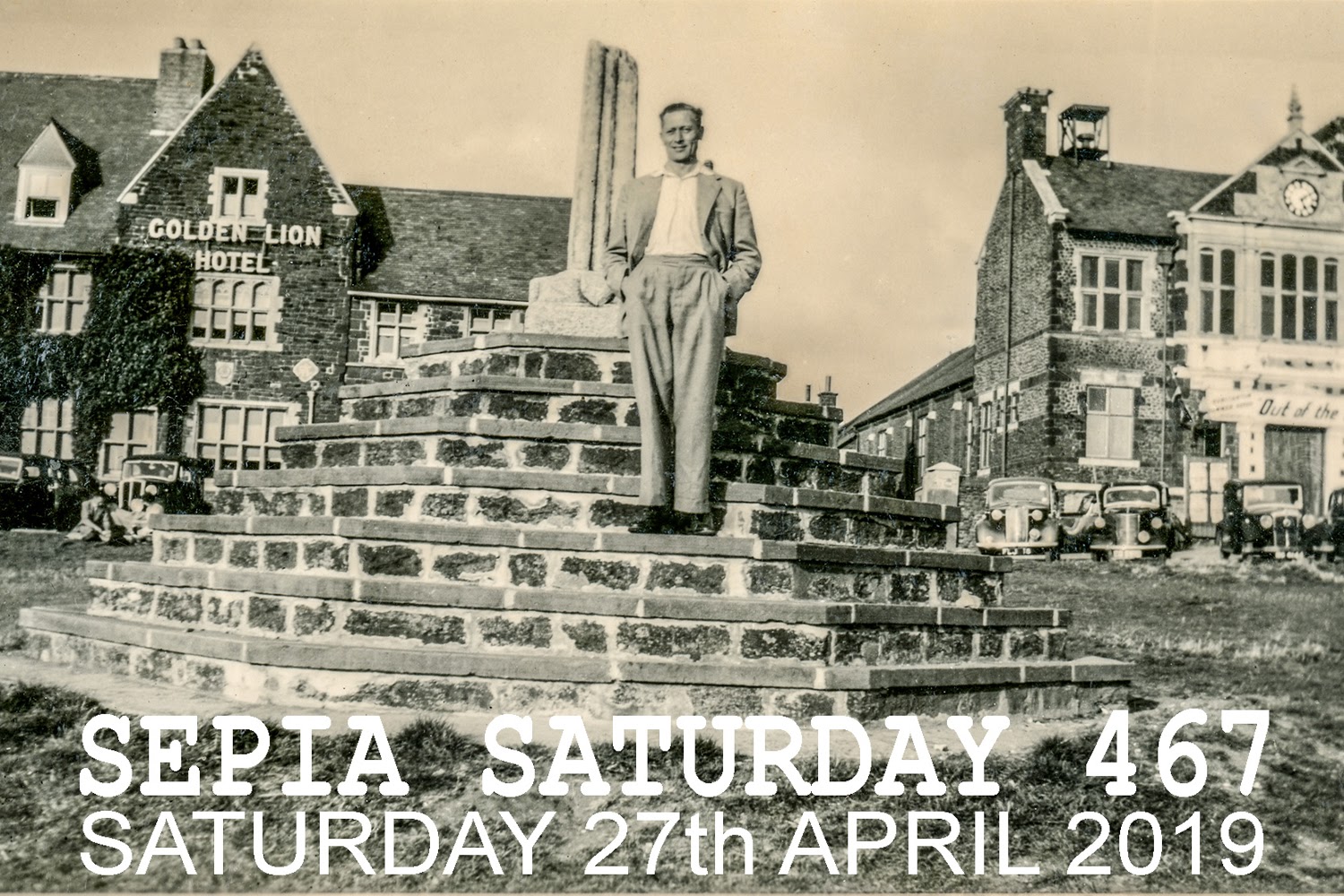
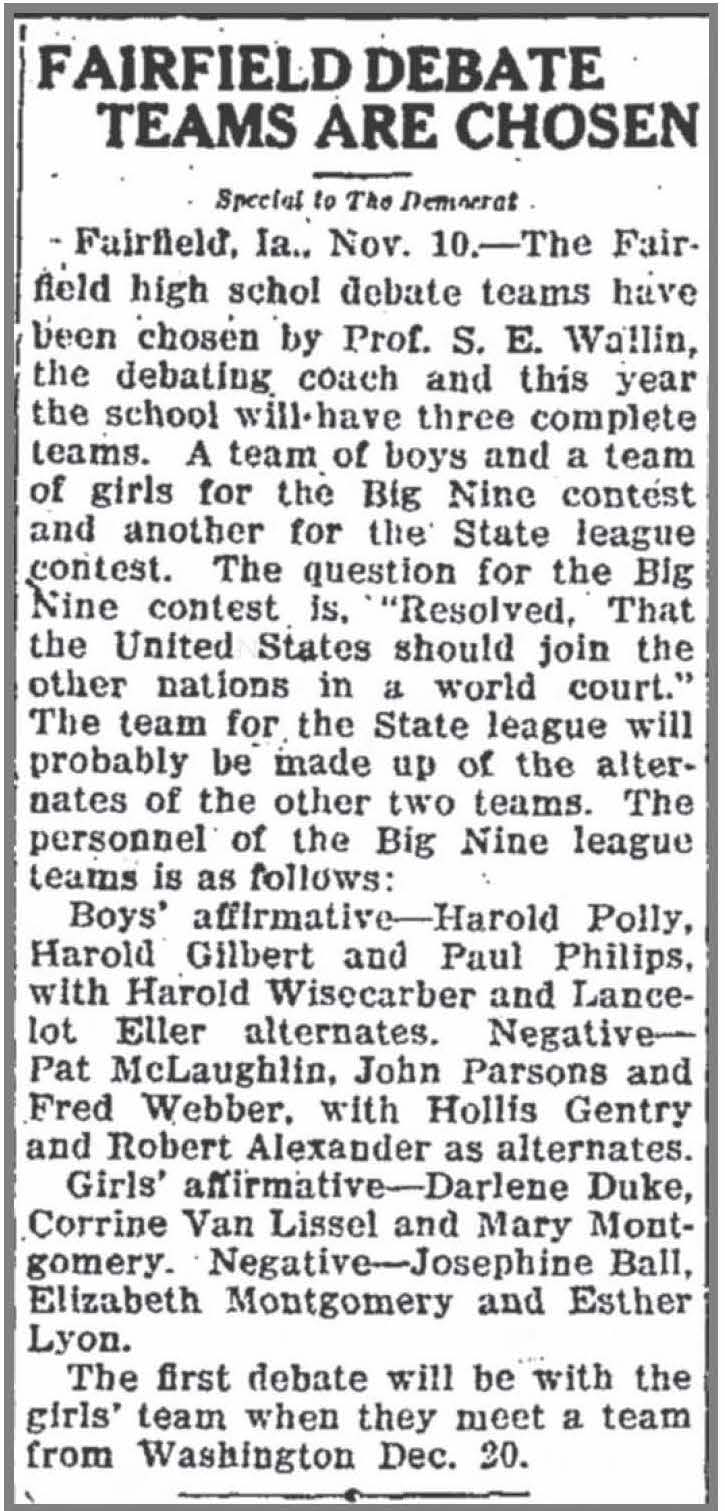
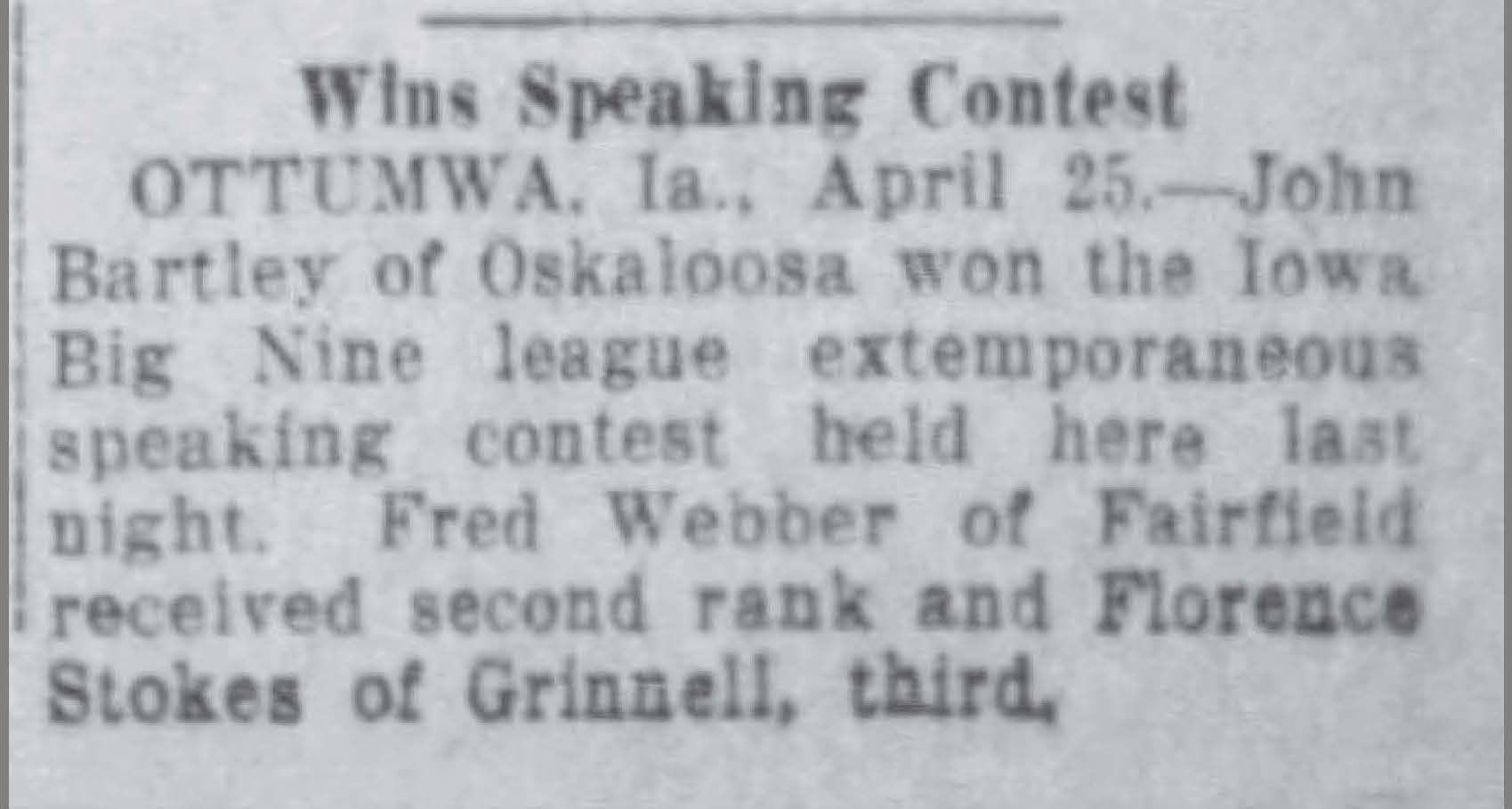

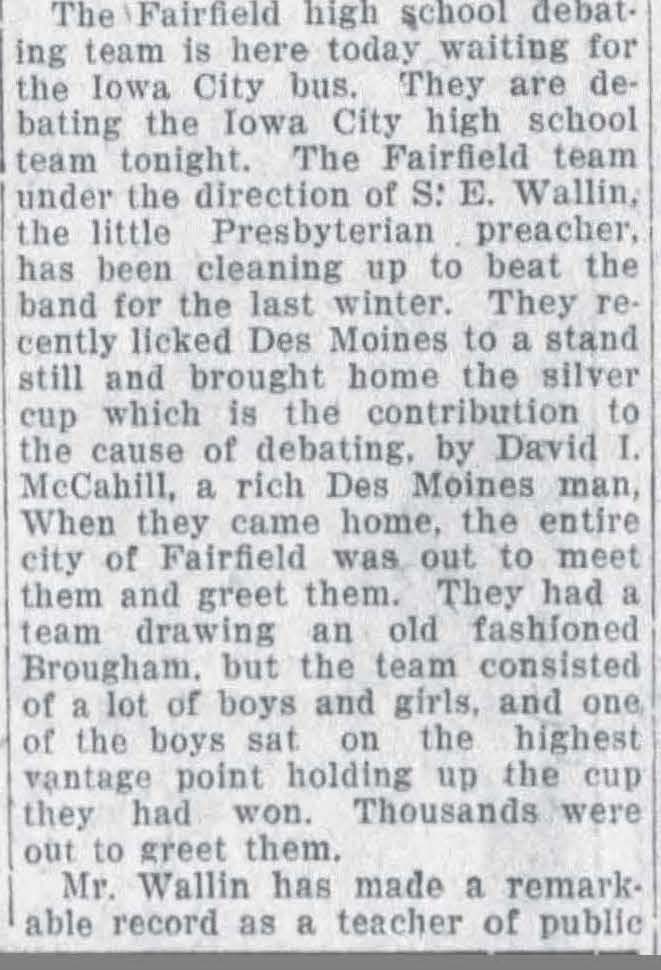
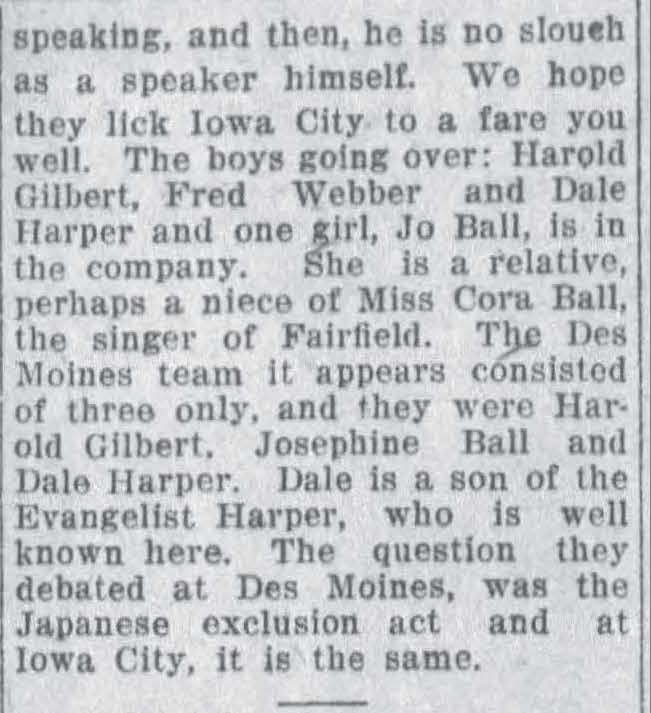
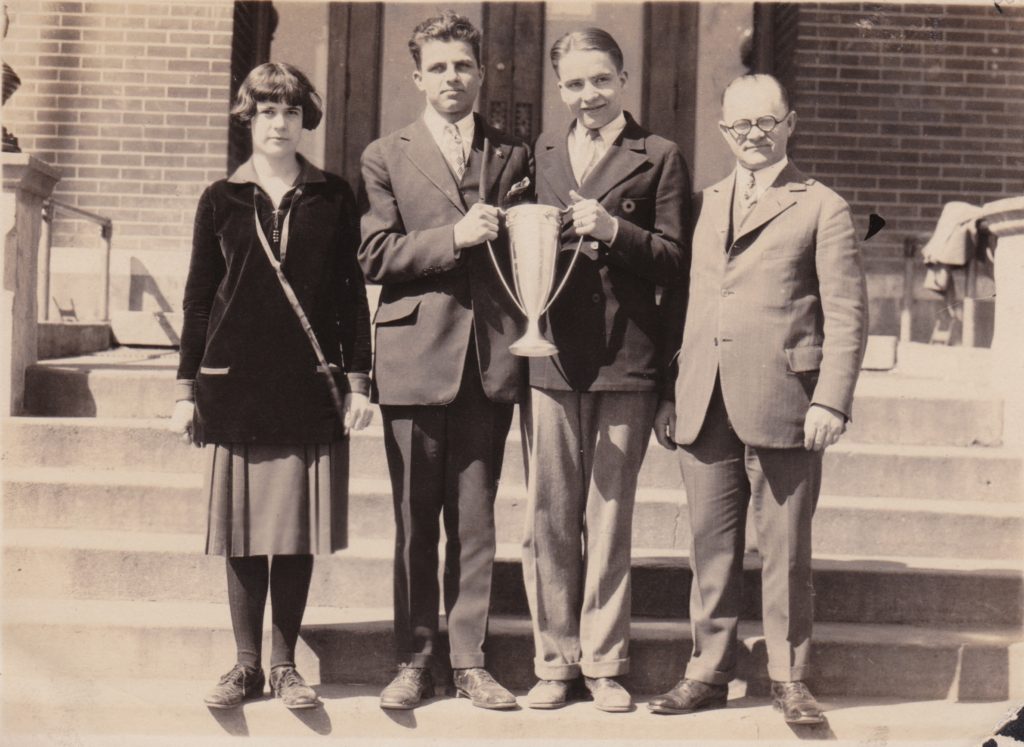
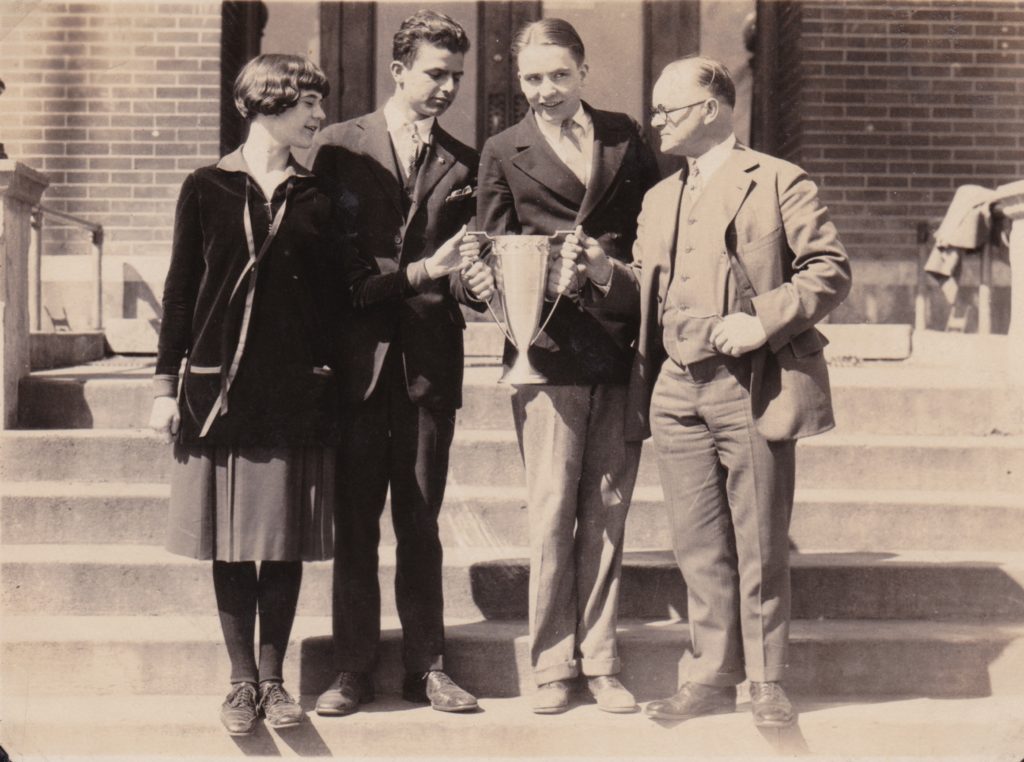
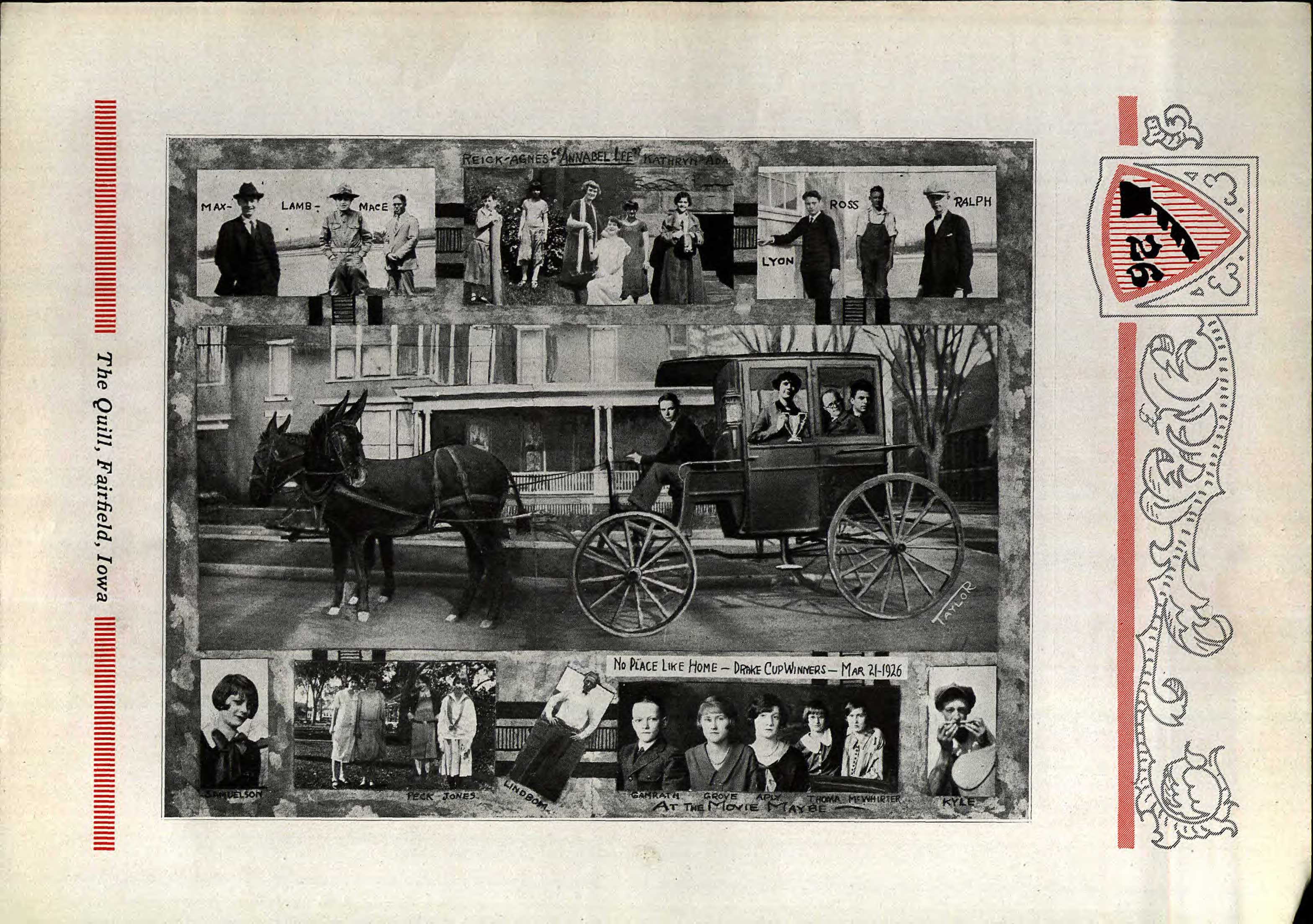
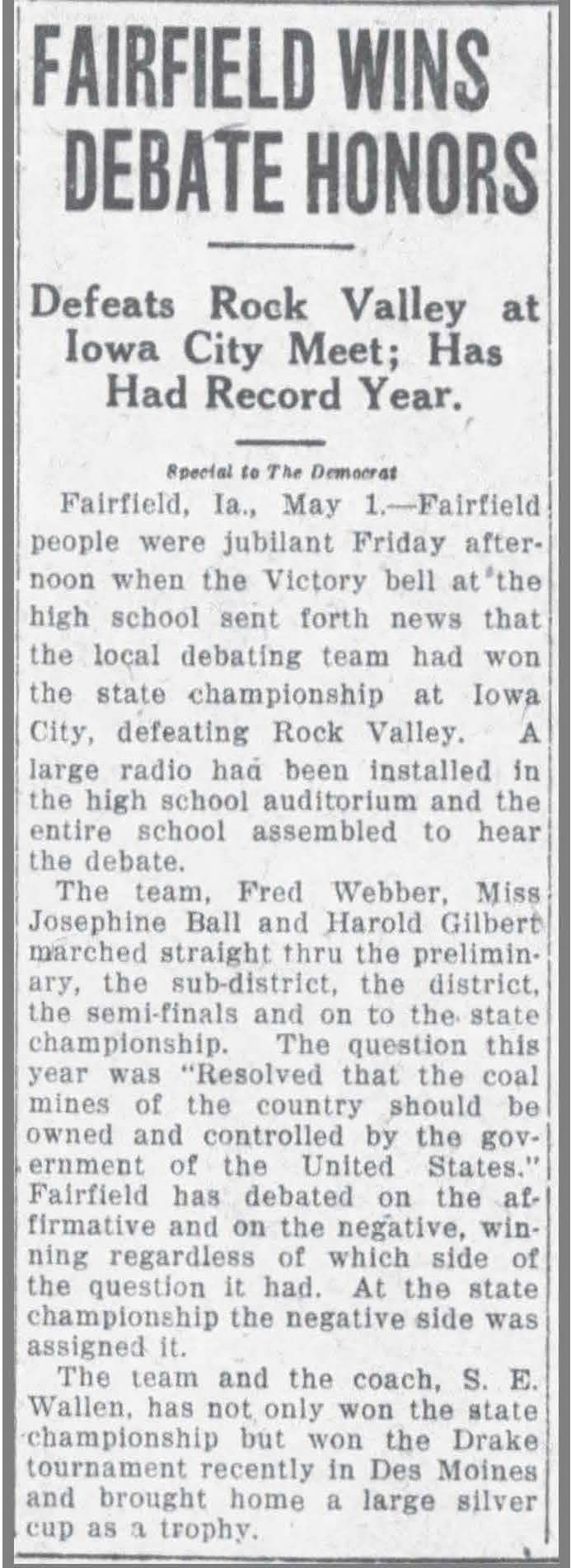
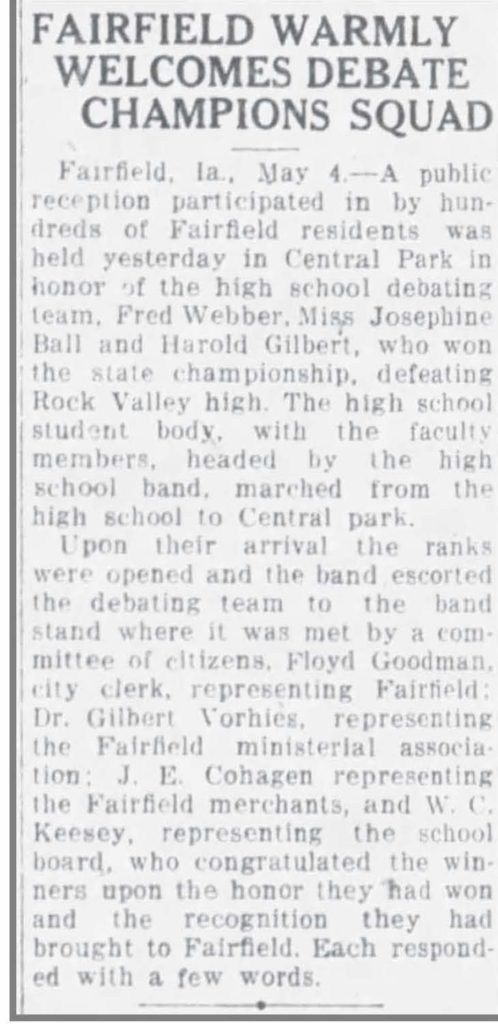
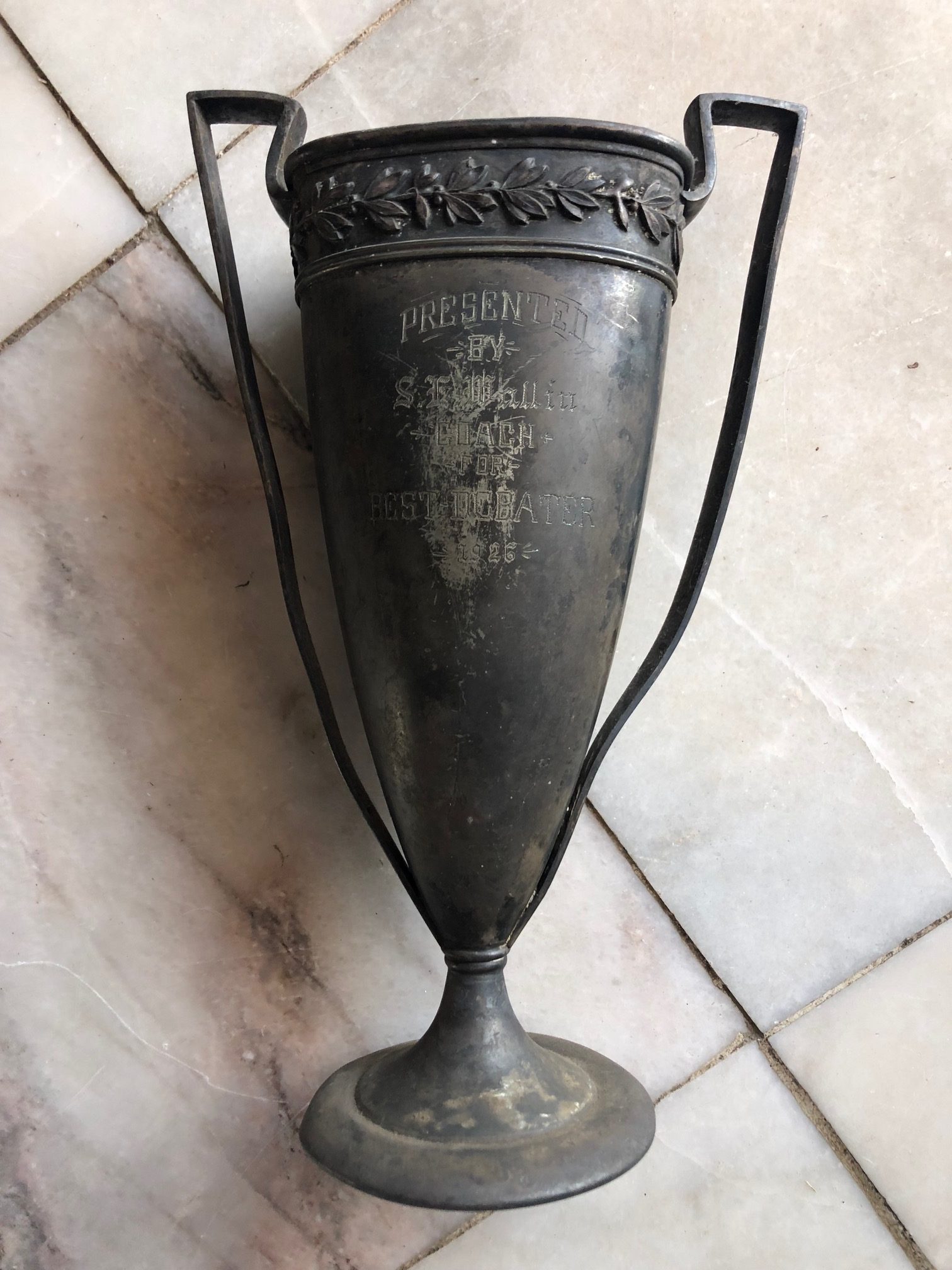
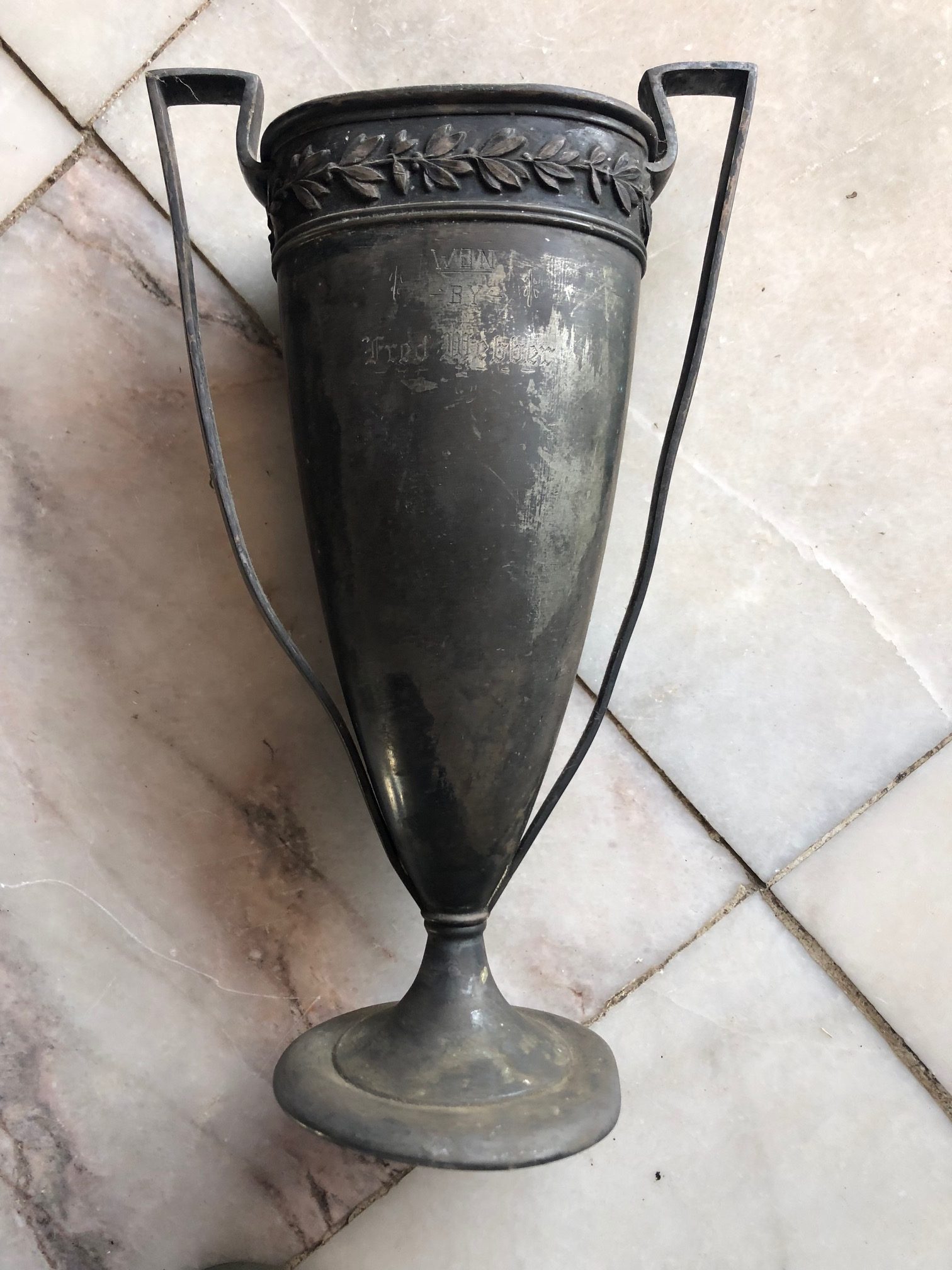
Kathy, thank you for all this research. I am overwhelmed.
It is fun to research your father!
Wow! You found a lot of material! Wouldn’t it be wonderful if champion debate teams still got this kind of community support!
Yes on both counts! Fred made it into the newspaper numerous times throughout his life, so he is a good relative to write about.
Bravo! Great story! What school today would broadcast a debate match to the student body or give their victorious debate team a celebration with students, faculty and band?!
It’s ironic that the questions debated — the world court, immigration, and energy policy are still issues in our time.
On a side note, I liked the band photo. The 1920s were when coed high school bands became a regular part of school curriculums. With so many boys (and a few girls) fancy uniforms were expensive, so one-size-fits-all capes were a way band directors could save money. It’s still a cheap uniform fashion used today.
I searched for a photo of the band with you in mind, Mike! Thanks for adding your knowledge about the uniforms. One of the things that has interested me most about researching great-uncle Fred has been the parallels to current events. Sometimes sadly so.
There was much that interested me in this post about my father. One was how he was always dressed in a suit! I wondered how his family afforded it/them. And how mature he looked, especially as a high school junior or senior. I was fascinated that the big debate was broadcast, that the debate team received a huge reception – band, bandstand with community leaders. Today it’s the athletes who receive that kind of attention – but really, the debate teams should still get that kind of recognition! I wish we knew more about the scholarship – did it pay for all of his tuition and books? And last, I would say that his experience on the debate team informed his sermons when he became an ordained minister. Well researched, logical, thoughtfully presented and always interesting and thought-provoking. Thank you, Kathy, for this insightful post about my father!
Well, you made my day! I love to get comments and yours is especially valued. I assume suits were worn to church and expected in debate competitions. Did your dad ever talk about hand-me-downs or working for extras like suits? It would be nice to know more about the scholarship. I was surprised, too, when I read about the celebrations for the debate team. He was certainly prepared to look at both sides of an argument! Also, I’m wondering if that “little Presbyterian minister” (his debate coach) was an influence on his decision to leave the Baptists for the Presbyterians.
Fascinating that in the 1920s the debate society was given the accolades, parades, press coverage and scholarships that today are often reserved for sports competitions. Particularly like the cart photo in the Quill! And how wonderful that a family member still has your Uncle Fred’s trophy.